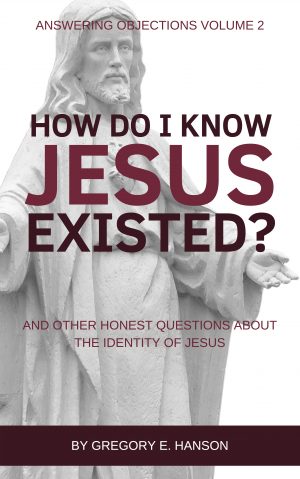
“If God’s so good, why does evil exist?” This objection is frequently raised by opponents of a belief in the existence of God. Others raise it in response to a natural disaster or a personal tragedy. Either way, this “problem of evil” seems to call into question the power, the love, and even the existence of God.
The argument is based on the presupposition that God is both all-powerful and all-loving. If God were truly all-powerful, then He would be capable of eliminating all evil. If God were truly all-loving, then He would surely want to get rid of evil. Why, then, does evil exist? Could it be that God is not all-loving, or He is not all-powerful, or perhaps that He does not exist at all?
There are, however, a few flaws with this objection, beginning with identifying anything as objectively good or evil. The person proposing the argument starts from the perspective that some things are truly evil and not just a matter of personal opinion. For example, the abuse of a young child could be considered evil at all times under all circumstances. Even if a person really enjoys abusing children, it would still be considered evil. Likewise, a devastating earthquake that kills thousands could be considered to be objectively evil.
But where did this standard of morality originate? To say that something is objectively (truly) good or evil is to state an absolute, which implies an objective standard of morality. Since objective morality is not normally considered to be the product of evolution (though a handful of people do make that claim), a theist would argue that it must come from a moral law-giver known as God. In this sense, the existence of evil actually becomes an argument for—not against—the existence of God.
A second flaw is that the argument fails to prove God could not have good reason to allow evil to exist. Within Christianity, believers maintain that God can take evil and turn it around to use it for His own purposes. Though He does not cause evil, God does take advantage of it. Sometimes this becomes clear quickly; at other times, it takes centuries to become apparent. Humanity simply lacks the perspective to say that God has no good reason to allow evil to exist.
Third, theists can counter the problem of evil by pointing out that many evils are the result of our own choices. For God to eliminate all evil, He would also have to eliminate free will, thus turning humanity into a collection of mindless automatons. Furthermore, because sinful choices affect all creation, even natural evil can be attributed to our free will. Yes, God could eradicate all evil, but He chooses not to do so because it would require taking away His loving gift of free will.
Evil poses no real challenge to the love, power, or existence of God. A world devoid of evil would be preferable from our perspective, but reasonable responses can be offered to address the problem. Plus, though we face evil in this world on a daily basis, there will come a day when evil is no more. In the meantime, God empowers us to overcome evil through the hope we have in Christ.
“We should live in this evil world with wisdom, righteousness, and devotion to God, while we look forward with hope to that wonderful day when the glory of our great God and Saviour, Jesus Christ, will be revealed” (Titus 2:12-13, NLT).
“For every child of God defeats this evil world, and we achieve this victory through our faith” (1 John 56:4, NLT).


